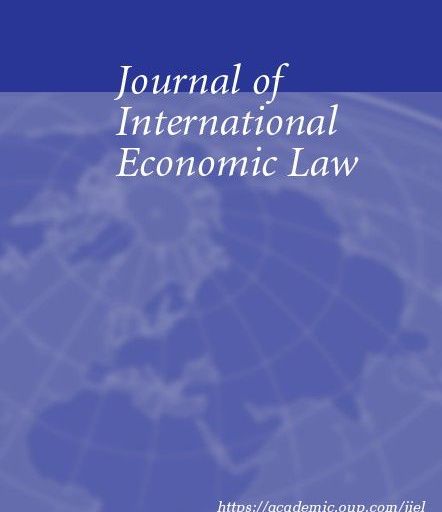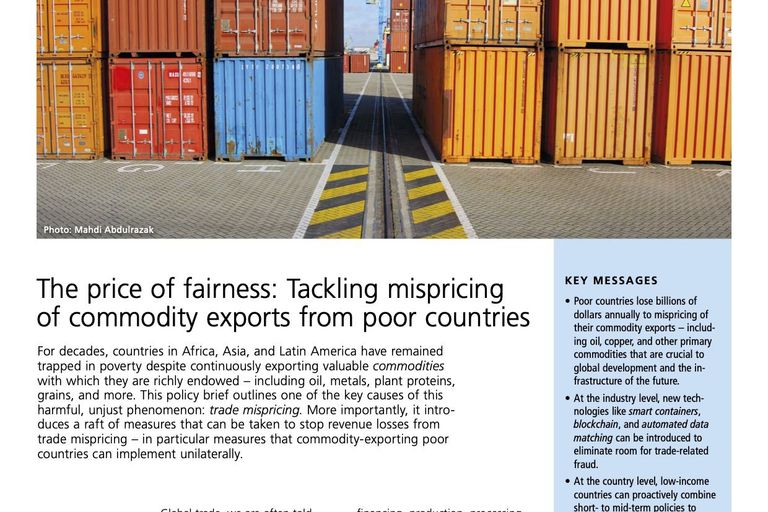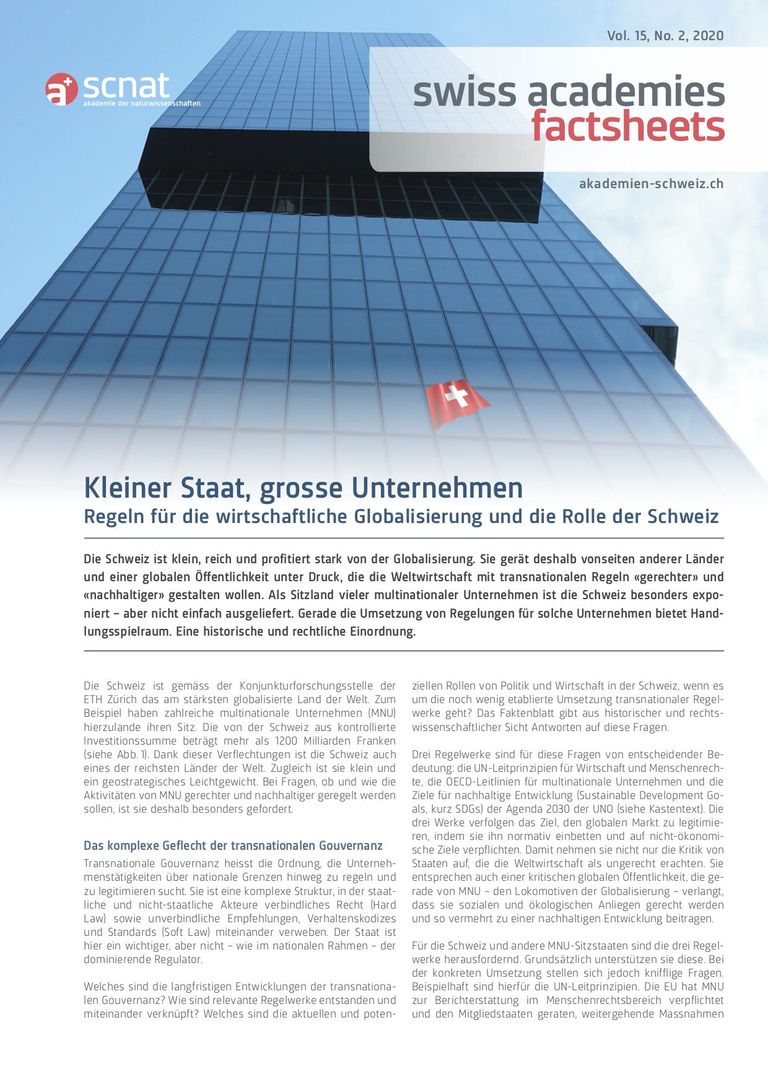Temi associati

Countering Commodity Trade Mispricing in Low-Income Countries: A Prescriptive Approach
Commodity trade mispricing, especially the undervaluation of commodity exports, disproportionately harms low-income countries that depend on commodity exports for most of their export earnings. Such countries should (re)consider adopting rule-based pricing methods as a prescriptive alternative to transaction-based valuation systems. This article firmly grounds rule-based pricing in market parameters. It calls for a hybrid form of market-based price regulation in the framework of public–private models of supply chain governance, also integrating advice from independent experts. This article addresses this policy option within the parameters set by international law, considering state regulatory scope under international trade and tax law. It challenges the popular objection that prescriptive pricing methods breach international trade and tax rules. Instead, it emphasizes the complexity of any such legal assessment under international economic law.

The price of fairness: Tackling mispricing of commodity exports from poor countries
For decades, countries in Africa, Asia, and Latin America have remained trapped in poverty despite continuously exporting valuable commodities with which they are richly endowed – including oil, metals, plant proteins, grains, and more. This policy brief outlines one of the key causes of this harmful, unjust phenomenon: trade mispricing. More importantly, it introduces a raft of measures that can be taken to stop revenue losses from trade mispricing – in particular measures that commodity-exporting poor countries can implement unilaterally.
Transdisciplinary research partnerships with business and civil society in the North-South context
This publication analyses opportunities and risks of transdisciplinary research partnerships with business and civil society in the North-South context. Such partnerships are in many cases crucial for impactful research and need to be implemented cautious and strategic. Well implemented partnerships enhance the practical relevance of research and the uptake of results, they provide access to additional data and networks but they also entail the risk of undermining scientific rigour and independence, and they increase the complexity of a research project and power-imbalances. This analysis provides some practical information and orientation for researchers and funding institutions in Switzerland on these opportunities and risks. The publication is the result of a literature review and a stakeholder dialogue with researchers and research-funders.

Wikipedia-Eintrag zu Unternehmensverantwortung
Erkenntnisse aus dem Faktenblatt "Kleiner Staat, Grosse Unternehmen" und dem Bericht "Nachhaltiges Unternehmenshandeln in Ländern des globalen Südens" sind in den Wikipedia-Eintrag zu Unternehmensverantwortung eingeflossen.

Blog Global Compact: Nachhaltiges Unternehmenshandeln im globalen Süden
Was tun kleine und mittelgrosse Unternehmen (KMU) aus der Schweiz, um in Schwellen- und Entwicklungsländern nachhaltig zu wirken? Wie könnte der Bund sie in diesen Bemühungen (noch) besser unterstützen? Im Rahmen eines Forschungsprojekt hat das Global Compact Network Switzerland & Liechtenstein (GCNSL) mit fünf KMU sowie VertreterInnen von Bund, Wirtschaft, Zivilgesellschaft und Wissenschaft an einem Stakeholder-Dialog zu diesen Fragen teilgenommen. Antonio Hautle vom GCNSL und Dr. Alex Gertschen von der Universität Bern, einer der Moderatoren des Dialogs, fassen die wichtigsten Erkenntnisse zusammen.

Nachhaltiges Unternehmenshandeln in Ländern des globalen Südens
Alex Gertschen vom Center for Global Studies sowie Elisabeth Bürgi Bonanomi und Isabelle Providoli vom Centre for Development and Environmnent (alle Universität Bern) führten 2020 im Auftrag der Kommission für Forschungspartnerschaften mit Entwicklungsländern der Schweizerischen Akademie der Naturwissenschaften zu diesen beiden Fragen einen Stakeholder-Dialog durch. An diesem Dialog nahmen fünf KMU sowie VertreterInnen von Bund, Wirtschaftsnetzwerken, Zivilgesellschaft und Wissenschaft teil. Dieses Dokument fasst einerseits die Aussagen der KMU und der anderen Stakeholder zu Praktiken nachhaltigen Unternehmenshandelns, den grössten Herausforderungen und zentralen Forderungen an den Bund zusammen. Andererseits ordnet es diese Aussagen aus einer wissenschaftlichen Perspektive ein.



